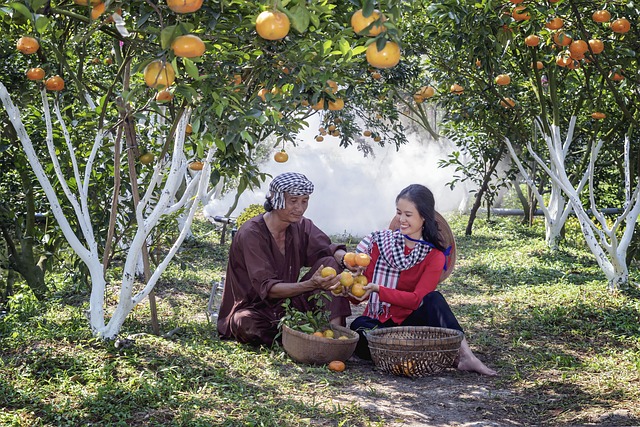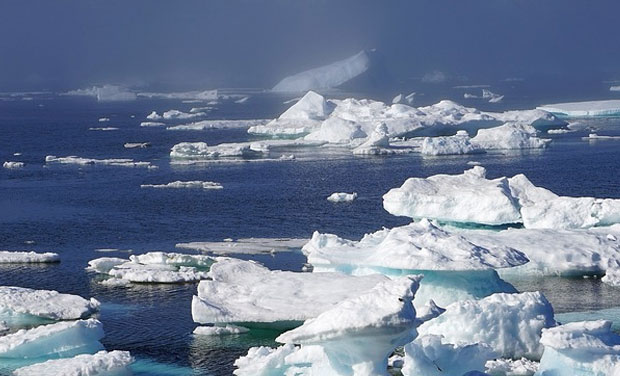How the world will be fed in coming years is a highly controversial issue. Not only is the world population increasing exponentially, we are also quickly depleting the non-renewable resources which our current agricultural practices depend on – namely ground water, oil, gas and nutrients such as phosphorus and potassium.
The UN has predicted that the population would peek at 9.5 billion by the year 2070, in other words, the population will increase by a third of todays population. It has also been recognised that we will have to feed this population without increasing the space in which we grow crops. In fact, due to increasing urbanisation and desertification, space in which to produce food is decreasing.
Some claim that normal yield increases will be enough to feed the world, but yields are increasing less every year – much less than demand is growing. Others claim that Genetically Modified (GM) plants are the answer. However, a study by the Union of Concerned Scientists has found that GM crops are not only expensive for farmers, but despite 20 years of research and 13 years of commercialisation, GM crops have had no significant impact on crop yields. More so, the paper concludes that GM technology is not likely to increase yields in the foreseeable future.
In the near future, farmers may have difficulty maintaining their current yields, let alone increasing them. Current farming practices are extremely ‘high input’ – meaning that to grow their crops, they input large amounts of pesticides, fertiliser, and water. This method of farming is exceptionally energy intensive – In the USA, an average of 1,000L of oil is used to produce food from one hectare of land, and 400 gallons of oil a year is expended to feed each US citizen. In the US, an average of 1,450 gallons of water per person is used every day, mostly on agriculture, 1.2 billion pounds of pesticides is used in the US every year, and huge quantities of synthetic nitrogen fertiliser are used*. Many of these issues are discussed in the documentary film Food Inc.
Peak Oil is the name given to the point at which world oil availability will begin to decrease, as opposed to the almost constant growth witnessed over the last century. Many believe that we have reached peak oil already – although oil companies would not admit it for business purposes, they appear to be consolidating rather than investing in growth and expansion. Predictions for peak oil range from 2011 to 2030. Although peak oil does not mark the end of oil usage, oil will continue to increase in price until it is no longer viable.
Our entire global food system is dependant on cheap and plentiful oil – from the high input nature of producing the food itself, to the global nature of food transport. Pesticides are manufactured and transported with oil, water irrigation systems are powered by it, and farm machinery uses it.
Fertiliser is produced using natural gas rather than oil. Natural gas, due to the nature of its extraction is predicted to hit a ‘cliff’ rather than a peak. While oil will slowly but steadily decline when it hits its peak, when gas hits its ‘cliff’ availability will fall steeply and suddenly. Due to soil depletion, yields will decrease without fertiliser.
Water shortage is tipped to me a major problem in coming years. Much agriculture worldwide depends on overdrawing water from underground reservoirs. These reservoirs recharge very slowly, if at all, and so this source of water is non-renewable. The loss of this source of water will adversely affect food production. For example, Central Valley, California leads the USA in agricultural production and exports, but the level of production is unlikely to be sustained without the constant and unlimited withdrawal of water from underground reservoirs.
Pesticide use is always increasing, and yet more crops are lost to pests every year. This is because farmers have abandoned crop rotation practices and entire regions have ‘specialised’ in a single crop, resulting in large areas of monoculture. Also, in some cases pesticides kill or harm the natural predators of pests as well as the pests themselves and harm microorganisms in the dirt that contribute to the health and fertility of the soil.
The solution to food shortages is not an increase in inputs, but a decrease. Sustainable agriculture revolves around the concept of making the best use of natures goods and services, without damaging them. For example, seeking to integrate agriculture with natural processes such as nutrient cycling, soil regeneration, and using the natural enemies of pests in food production. Organic farming, permaculture and Integrated Pest Management (IPM) are examples of more sustainable agricultural endeavours. Several studies have shown that organic farms can produce yields as good, or better, than those using high input, conventional methods. Similar results have been found using Integrated Pest Management. It relies on substituting costly, fast inputs for more time consuming, knowledge-dependant practices.
Sustainable agriculture will not only reduce the impact farms have on the local environment, but also reduce agriculture’s dependence on non-renewable inputs and begin the regeneration of heavily degraded soils. Also, because most food shortages will be occurring in poorer countries, organic agriculture offers cheaper and more accessible methods for increasing yields. A problem with Organic Agriculture is that it is less flexible than conventional farming practices, and requires farmers to choose crops to suit the areas climate, rather than crops, which are most profitable. Sustainable agriculture requires a more in-depth and involved approach to farm management, rather than the simple ‘input-output’ methods of current conventional farming.
A frequent criticism of Organic Agriculture is that it lacks the ability to feed the world in the near future. But conventional farming practices which depend on oil and gas is not the solution to world hunger. Genetically Modified foods which have failed to increase yields, and which are expensive and high-input are also not an appropriate solution. Sustainable Agriculture is the only viable future of food



